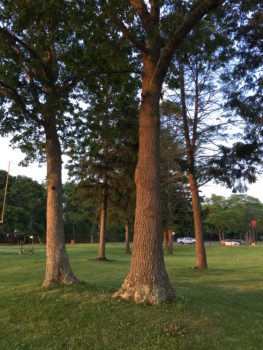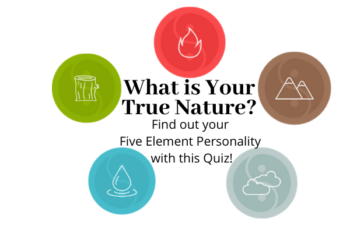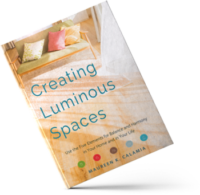 The dog was barking the entire two hours, yet I didn't quite get the message to stop until I was hit with a migraine.
The dog was barking the entire two hours, yet I didn't quite get the message to stop until I was hit with a migraine.
I was consulting with a friend on her home and had just started a space clearing and blessing ceremony, when I got the flashing lights, my warning of a migraine. I knew that if I didn't stop immediately I would not be able to drive home for a few hours.
But I still didn't understand why this happened.
It was only a few hours later, as I was reviewing my feng shui recommendations for her, that I realized why. Something important was overlooked. Something with the land. And that something was trees.
There was not one tree on her 1/4 acre property. Not one. Not even a large shrub.
When I recently read Like a Tree: How Trees, Women, and Tree People Can Save the Planet by Dr. Jean Shinoda Bolen, I suddenly had a label for it. There are tree people and "non-tree" people.
And if you're reading this, you probably also wonder, what made them that way? What makes them tick?
Were there always non-tree people?
So I reflected on my studies of ecopsychology and nature connection, and how nature contributes to a sense of wellbeing. There are thousand of studies that show that access to nature contributes to a feelings of peace, calm, and even love. Being in nature improves our heart rate, blood pressure, and production of those good-feeling hormones. We are in rhythm with the Earth, the way we've evolved to be.
 So, I wondered, is this connection to nature essential for wellbeing, just like connection with people?
So, I wondered, is this connection to nature essential for wellbeing, just like connection with people?
According to Stephen Kellert, former professor at Yale University and author of Birthright: People and Nature in the Modern World, yes.
Kellert suggested that our intellectual and emotional capacities hinge on our relationship with nature. In fact, even our ability to find meaning in life.
And in a world where people increasingly live indoors, with less direct experience of nature, he believes that we are losing vital elements of ourselves: our health, our intellect, our capacities for affection and reason.
What I am noticing is something I'll call "bio-inconvenience." A state of mind when we feel that aspects of nature is inconvenient to us.
I must admit that when out on a hike, and the weather turns unexpectedly, I look forward to getting inside to a warm, dry place. Nature has, for a time, become inconvenient for the enjoyment of my hike.
But I am assuming, perhaps, that "non-tree people" are more prone to feeling bio-inconvenience.
What I am witnessing, mostly in suburbia, is a huge disdain for trees! People are cutting down healthy trees because they are a nuisance to maintain their landscaping.
Instead, their yards are filled with sod, masonry, decks, and pools. And well-maintained (aka, controlled) gardens.
Real, live nature is inconvenient for them.
Trees make a mess with their leaves, pinecones, and nuts. Trees are an insurance liability. Might as well remove them so it doesn't cause destruction (even the healthy ones).
Is this all about our human desire to exert greater control of our environment, save money on landscaping, or to avert a potential insurance claim? Is there a deep desire to dominate nature (Mother Earth) in our own corner of the world?
Scholars say that humanity has become more intolerant of nature. We are more separated from nature than ever before.
If this rise in a "non-tree" mindset came with the rise in technology and going indoors, then were we all tree people before the Industrial Revolution?
And if so, then what is to become of us if we do not find a way back to this state of being more sympathetic to the natural world?
And what is my role in this? What is your role?
The Sanitized Land
Back to my consultation that day...
Although the property was beautifully maintained, with requisite sod, gardens, and patio, there was no life. It looked beautiful to the untrained, "non-tree person" eye.
But to the tree person within me, the land was sanitized. There was no vitality and delight. The land was dead and lifeless. It was dominated and controlled.
And the land was calling out to me to stop, take notice, and take steps to restore life.
That is my job, and I was not being the earth steward that I am here to be.
If you are asking these bigger questions, too, perhaps you are meant to play a different role. A healing role as an earth steward.
If so, learn more about Divining the Earth Feminine, an earth energy healing certification course, that I teach.
Image credit:
[[File:Los Angeles River DSF3361.jpg|Los_Angeles_River_DSF3361]]



Reader Interactions